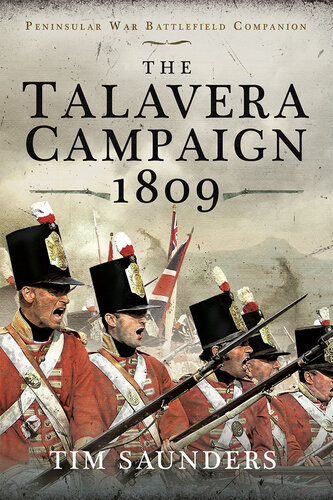

Most ebook files are in PDF format, so you can easily read them using various software such as Foxit Reader or directly on the Google Chrome browser.
Some ebook files are released by publishers in other formats such as .awz, .mobi, .epub, .fb2, etc. You may need to install specific software to read these formats on mobile/PC, such as Calibre.
Please read the tutorial at this link: https://ebookbell.com/faq
We offer FREE conversion to the popular formats you request; however, this may take some time. Therefore, right after payment, please email us, and we will try to provide the service as quickly as possible.
For some exceptional file formats or broken links (if any), please refrain from opening any disputes. Instead, email us first, and we will try to assist within a maximum of 6 hours.
EbookBell Team

4.3
38 reviewsLieutenant General Sir Arthur Wellesley returned to the Peninsular in 1809 convinced that the country could be held against the French. His audacious crossing of the Duoro and speedy victory at Oporto in May, followed by the deceptively easy ejection of Marshal Soult's corps, confirmed this view, giving him the confidence to plan a campaign with General Cuesta's Army of Extremadura to advance on French-held Madrid via the Tagus Valley. From the outset relations between the two allied generals were poor, not to mention the divisions and enmity within the Spanish juntas and army. Matters only got worse once Wellesley's army entered Spain, thanks to a failure to provide supplies and missed opportunities. Finally, the French army, with King Joseph at its head, marched to confront the allies at Talavera. The fighting did not start well for the British, who were taken by surprise and had to fight hard to extricate themselves from trouble, before inexperienced staff officers and commanders mis-deployed divisions and brigades, nearly resulting in disaster for the Allies when Marshal Victor launched a night attack. The Peninsular Army still had much to learn. The following day, the French attacked again with the full force of a Napoleonic army infantry, cavalry and artillery, but the two-deep British line held and with their confidence shattered, the French withdrew. It was a hard-fought victory for the British commander, who was soon to be ennobled as the Duke of Wellington.